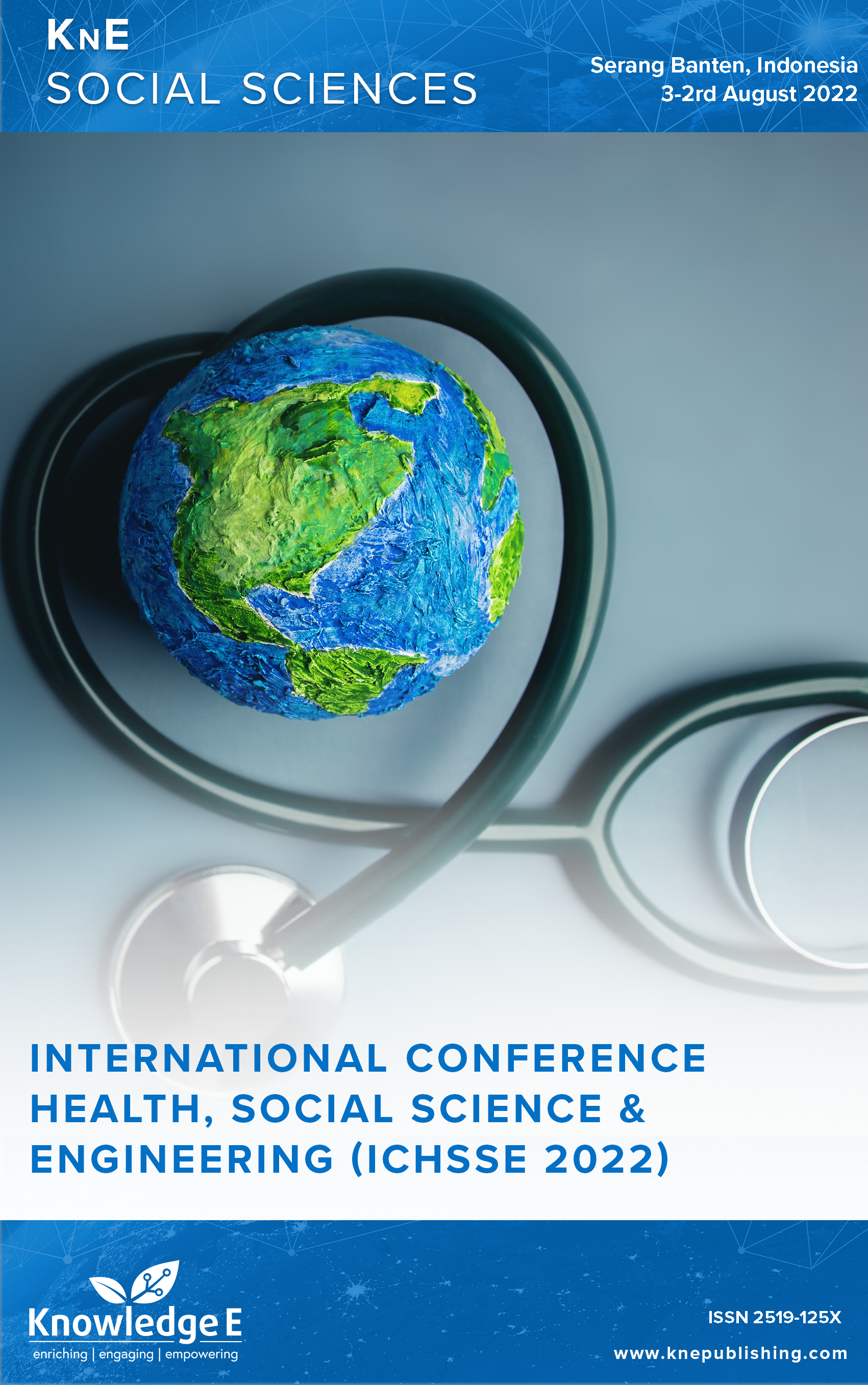Global Warming and its Cause: Natural Science, Social, and Religious Perspective (Literature Study)
DOI:
https://doi.org/10.18502/kss.v8i14.13814Abstract
One of the impacts of global warming is that it occurs due to an imbalance in natural systems and does not occur by itself. Humans, as the bearers of the mandate to care for the earth, are responsible for non-natural changes on earth. This literature review aims to determine the factors that influence changes in human thinking and behavior in responding to climate change as a result of human behavior, taking into account the factors of adherence to local wisdom, leader policies, and religious intervention. Themethod used was the library research approach. This method explores deeply through documents, journals, books, and others. The data in this study were obtained from library materials. This literature study discusses global warming and its causes from the perspectives of natural, social, and religious sciences. First, to preserve the environment and to remember the human mandate to maintain this grace of Allah that needs to be inherited as a culture of clean and healthy living. Second, human behavior is also influenced by social factors. Third, the legality factor from the government and religious fatwas with the issuance of various decrees related to environmental control is certainly a reinforcement. The conclusion is that the global climate change has a pretty serious relationship if we look at it from the perspectives of science, social, and religious ethics.
Keywords: global warming, natural, religious, social
References
[2] Tarolli P, Sofia G, CAO, Wenfang. The geomorphology of the human age. Reference module in earth systems and environmental sciences. Encyclopedia of the Anthropocene. 2018;1:35-43.
[3] LePan N. Visualizing the human impact on the earth’s surface. 2020 Nov 28. https://www.visualcapitalist.com/human-impact-on-the-earths-surface/
[4] UCAR. Layers of earth’s atmosphere. Center for science education. University Corporstion for Atmosphere Research. 2021. https://scied.ucar.edu/learningzone/ atmosphere/layers-earths-atmosphere
[5] Lucas J. What is ultraviolet light? 2017 Sep 16. https://www.livescience.com/50326- what-is-ultraviolet-light.htmlg
[6] Biotech Water Researchers. Advantages and disadvantages of ultraviolet radiation. 2019. https://biotechwater.com/advantages-disadvantages-ultraviolet-radiation/
[7] Shaftel H, et al. What is the green house effect? 2021 Dec 13. https://climate.nasa.gov/faq/19/what-is-the-greenhouse-effect/
[8] Winastya KP. Pengertian Keseimbangan Lingkungan, Ketahui Cara Menjaganya. 2021 Dec 11. https://www.merdeka.com/trending/pengertian-keseimbanganlingkungan- ketahui-cara-menjaganya-kln.html
[9] Putriana HE. Manusia sebagai Agen Perubahan. 2020 May 13. https: //www.kompasiana.com/uniqueputriana/5ebb54b9097f36371148d412/manusiasebagai- agen-perubahan?page=2&page_images=1
[10] Majeri MF, McKay JE. Reviving Islamic approach for environmental concervation in Indonesia.’ Brill: World Views; 2012. p. 286–305.
[11] Swim JK, Clayton S, Howard GS. Human behavioral contributions to climate change. Am Psychol. 2011;66(4):251–264.
[12] Beckage B, Gross LJ, Lacasse K, Carr E. Linking models of human behaviour and climate alters projected climate change. Nat Climate Change. 2018 Jan;8(1). https://www.nature.com/nclimate/
[13] Putra ES. Local wisdom and the hidden third. 2020 Feb 27. https://ctss.ipb.ac.id/2020/02/27/local-wisdom-and-the-hidden-third/
[14] Krisnawati E. Kearifan Lokal di Indonesia dan Contohnya di Berbagai Bidang. 2021 March 4. https://tirto.id/kearifan-lokal-di-indonesia-dan-contohnya-dalam-berbagaibidang- gaQQ
[15] Fatwa MUI No 41 Tahun 2014
[16] Kep Dirjen PPKL No SK. 36/PPKL/SET/WAS.1/6/2021
[17] Mangunjaya F. Mempertahankan Keseimbangan: Perubahan iklim, keanekaragaman hayati, perkembangan berkelanjutan, dan Etika Agama. Yayasan Obor Indonesa. 2015.
[18] Mangunjaya FM, Wijayanto I, Supriatna J, Harfiyah H, Khalid F. Muslim projects to halt climate change in Indonesia. IPCSS. nd.
[19] Avis W. Role of faith and belief in environmental engagement and action in MENA region. K4D: Knowledge, evidence, and learning for Development. 2021.
[20] Climate Change Policy: Islamic declaration on global change. (n.d.). Islamic Relief.Sarkawi AA, Abdullah A, Dali Md. The concept of sustainability from the islamic perspectives. Int J Bus Econ Law. 9(5).
[21] Dariah hR, Salleh MS, Shafiai Hakim M. A new appoach for sustainable development goals in Islamic perspective. Elsevier, ScienceDirect; 2015, 17 Desember.
[22] Wahyuni YS. The Islam and the green paradigm (a proposed solution from Islamic eco-theology for the East Kalimantan Environmental Problems). Lentera. 2015;XVIII(1).
[23] Koehrsen J. Muslim and climate chnge: How Islam, Muslim organization, and religious leader influence climate change perception and mitigatin activities. WIREs Clim Change: Wiley; 2021.

